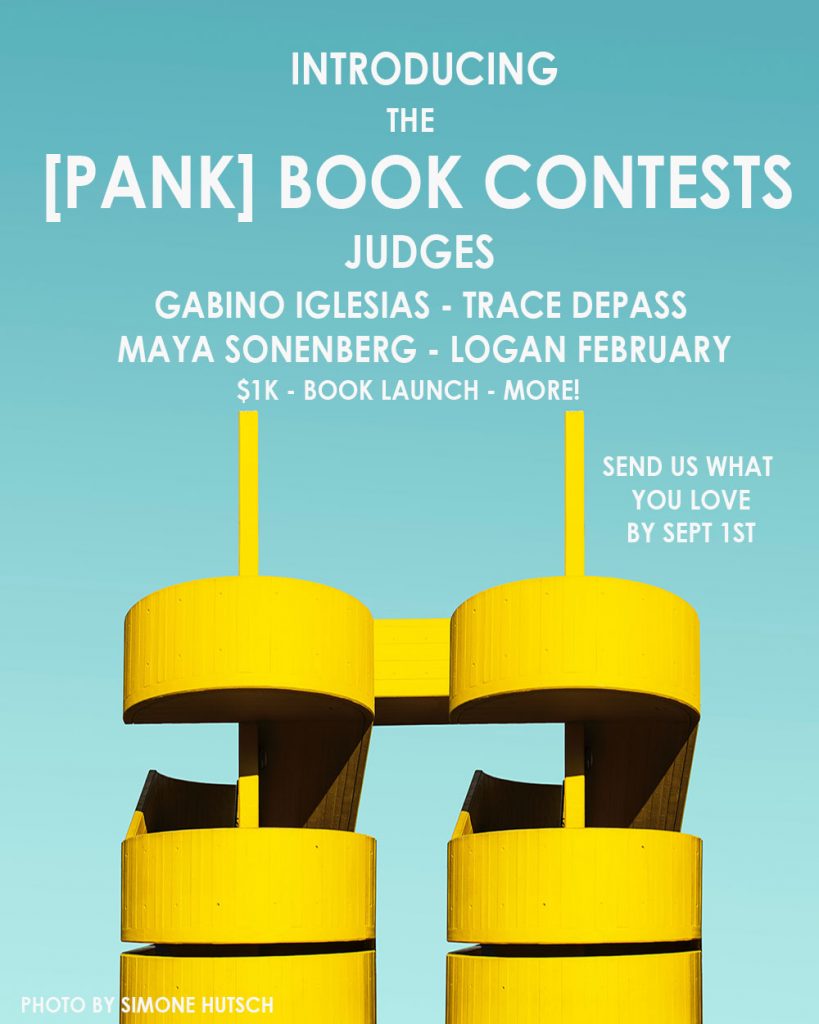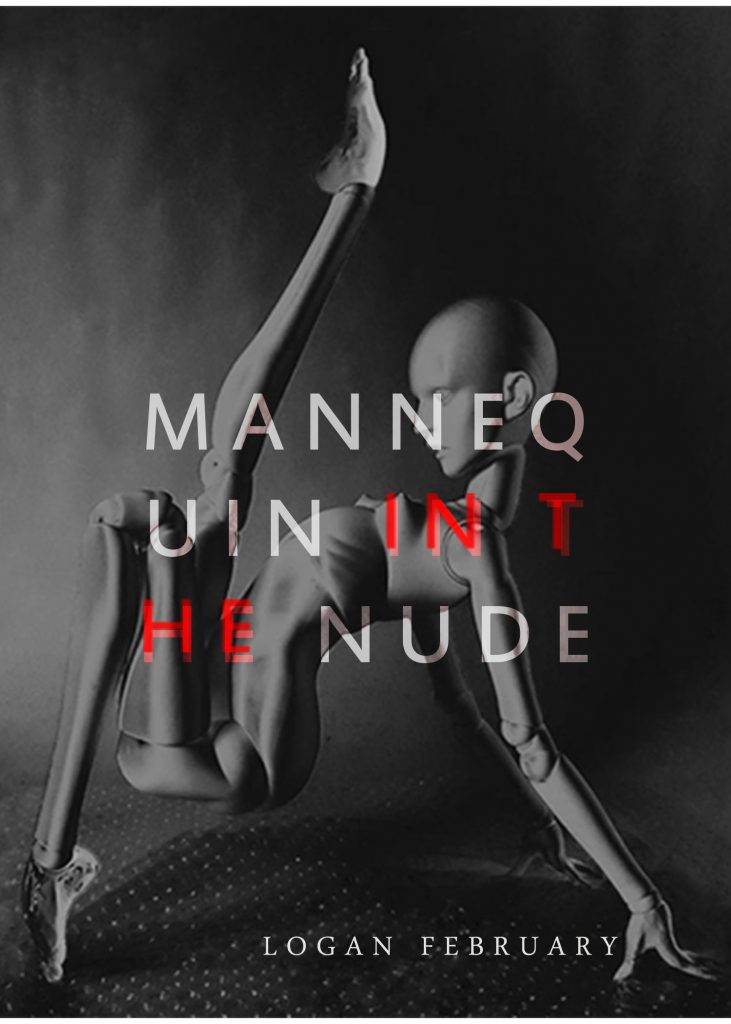
Editorial Assistant and in-house interviewer Erinn Batykefer sat down with Mannequin in the Nude Author and Little Book Contest Judge Logan February to discuss what makes a stand-out contest submission!
Erinn Batykefer: Logan, it’s a pleasure to be back here in the interview chair with you again! The last time we chatted, you were considering baby blue hair for summer. Did that experiment come to fruition?
Logan February: It’s wonderful to be talking with you again! The last time was, what, four months ago? Amazing. So much has happened since then. But the blue hair, not yet. I’ve been very busy this summer (with a lot of internal work) so I haven’t felt much need to modify my appearance. But it will probably happen at some point, still.
EB: You’re Associate Director of Dovesong Labs, which mashes up the literary and the digital in creative video experiments, lessons, a salon, etc. Does the work to curate that space come to bear on your approach to judging PANK’s Little Book Contest?
LF: You know, there’s always so much to learn from being a reader and an editor, but I didn’t realize how much of a learning experience it would be to work as an educator, as well. Curating syllabi, creating study guides; it has evolved my relationship with poetics, and literary craft in general, in a big way. Language lets us into newer, fuller understandings (and misunderstandings) of self and society. I am interested in that—in the intention and execution of language.
EB: How do you see the little book / chapbook form working differently from a full length collection?
LF: I love chapbooks because you can read them in one go, you know, there’s limited space for the work to establish its thesis and formulate its own universe. I like the idea of that concision, I think a lot of amazing things can be born within that threshold. Where I see the full-length as a musical album—where you have to spend a whole cycle creating a complete body of work—my idea of the little book or chapbook is like an EP or a mixtape. I think of them as an opportunity to try out new poetics, to experiment, to tease new work, and just generally have a little more fun.
EB: What do you hope to see in the submissions for PANK’s Little Book Contest?
LF: Well, my love for literature transcends genre, so I am hoping to see a wide range of styles and inventions. I particularly like prose poetry and fragmented essays of creative nonfiction, so I hope I get stuff like that. Or like, a chapbook-length single poem! That would be very cool, I think. Everything, really, as long as it’s excellent. One of my current favorite pamphlet-type bodies of work is Anne Carson’s The Albertine Workout—in which she examines Albertine, the principal love interest of Marcel in Proust’s À la recherche du temps perdu—so I would be thrilled to read something like that, something critical and literary. Above all, I want to be amazed.
EB: You’re a student of forms, so you know the challenge and the skill it takes to write something that feels relevant in a form that is, in some cases, hundreds of years old—is that something that catches your eye when you’re reading new work?
LF: Ah, yes, definitely. Being written in a specific form makes a poem demand, I think, to be read a little closer, with a little more attention. It becomes important, then, to reward that attention with a well crafted poem, whose formal intentions are well realized. That’s what makes such poems worth all the effort they require.
EB: Your title from PANK this year, Mannequin in the Nude, draws on your global life as a queer African poet in its interrogations of religion, death, desire, grief, identity—one that is often dangerous to live. What, if anything, would you say to a writer who is facing similar risk in their work and life?
LF: I know firsthand how tough and terrifying it can be in that place, facing risk and threat externally, and many demons internally. All I can say is: have courage. Everything that must change requires your courage. Never forget to take care of yourself, and to stay as safe as possible. Do whatever you need to feel free. And you are allowed to get tired, to lose faith, to be afraid—fear is natural but it must not paralyze us. The important thing is to keep going.
EB: We can’t wait to see what you find among the finalists! Any last advice to the writers who are submitting work to PANK now or in the future?
LF: I can’t wait to get into it! All I can say is probably: have some trust in the writing, put in the work that it demands. And try to make wise decisions!
![[PANK]](https://pankmagazine.com/wp-content/themes/pank/assets/images/pank-logo-large.png)

